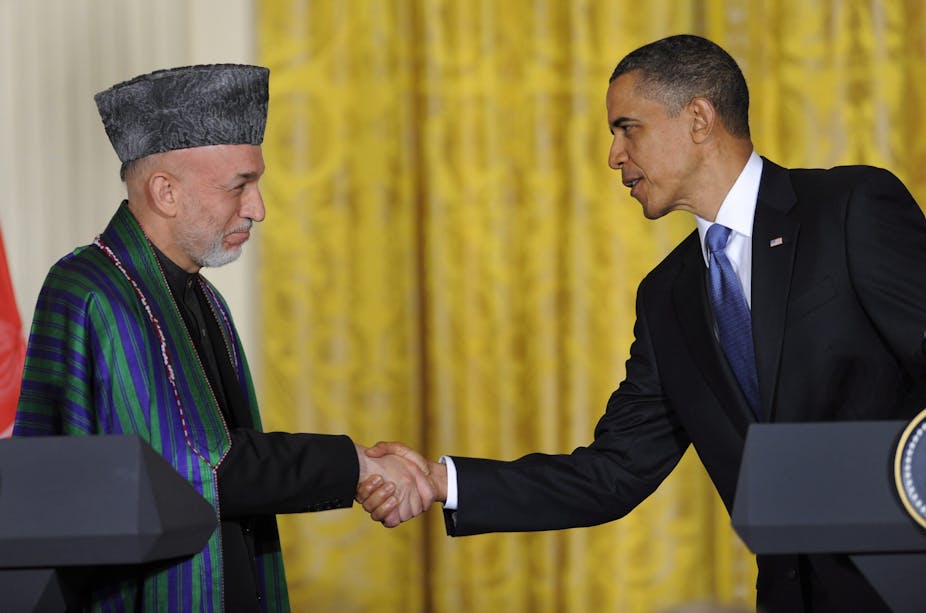US president Barack Obama has formally announced the beginning of negotiations with the Taliban aimed at achieving a lasting peace in Afghanistan.
The talks will be held in the Qatari capital of Doha, where the Taliban will open an official office.
Since the November 2001 invasion of Afghanistan, thousands of US and coalition troops, including 39 Australians, have died in the central Asian nation. Taliban and Afghan civilian casualties run many times higher.
With Western military forces due to withdraw at the end of next year, and Afghan services taking formal military control of the country this week, bringing the Taliban into formal political structures is seen as the only way to prevent the country falling into the kind of anarchy that developed after the Russian-backed Najibullah government fell in 1992.
The Conversation spoke with Deakin University international affairs expert Scott Burchill on the impact of the announcement and where the Western nations find themselves as the nearly 12 year long conflict winds down.
How important a development are these talks?
A political solution to the conflict in Afghanistan was inevitable, and widely understood from the earliest stages of the war. Astute analysts of US foreign policy such as Gabriel Kolko were writing about this in 2002. These talks mirror informal contacts that have been taking place behind the scenes for a number of years, though without formal public acknowledgement.
Who comes to the talks in a stronger position?
Incredibly, the outcome will be largely the same. The Taliban only have to survive in order to win this war, to the extent that “winning” means anything. It seems clear they will be one of a number of political groups in post-withdrawal Afghanistan, possibly forming a coalition government with Karzai loyalists and other mujaheedin. The Taliban could not be destroyed and were always going to play some role in the country’s political future.
Where does the West find itself now it is formally engaging in dialogue with an opponent it has fought for more than a decade?
It is a moral crime that over the last decade so many Afghan and allied lives were unnecessarily destroyed. Blame for this tragedy lies squarely with Western politicians such as George Bush, Barack Obama, Kevin Rudd and Julia Gillard who prolonged the war, foolishly believing there were technological and strategic solutions to the global problems that they, themselves, have largely generated. This was a fantasy which their own populations saw through, with opinion polls in the West confirming consistent opposition to the presence of Western troops in Afghanistan since 2005.
Can either side claim a “win” in Afghanistan?
Four US soldiers were killed in the country last night. How painful must phrases such as “in it for the long haul” and “seeing the job through” seem to the families and friends of those who perished in the West’s record-long reckless adventure in Afghanistan. However Washington and Canberra attempt to spin these developments, Afghanistan has been another humiliating defeat for Western intervention in Central Asia.

